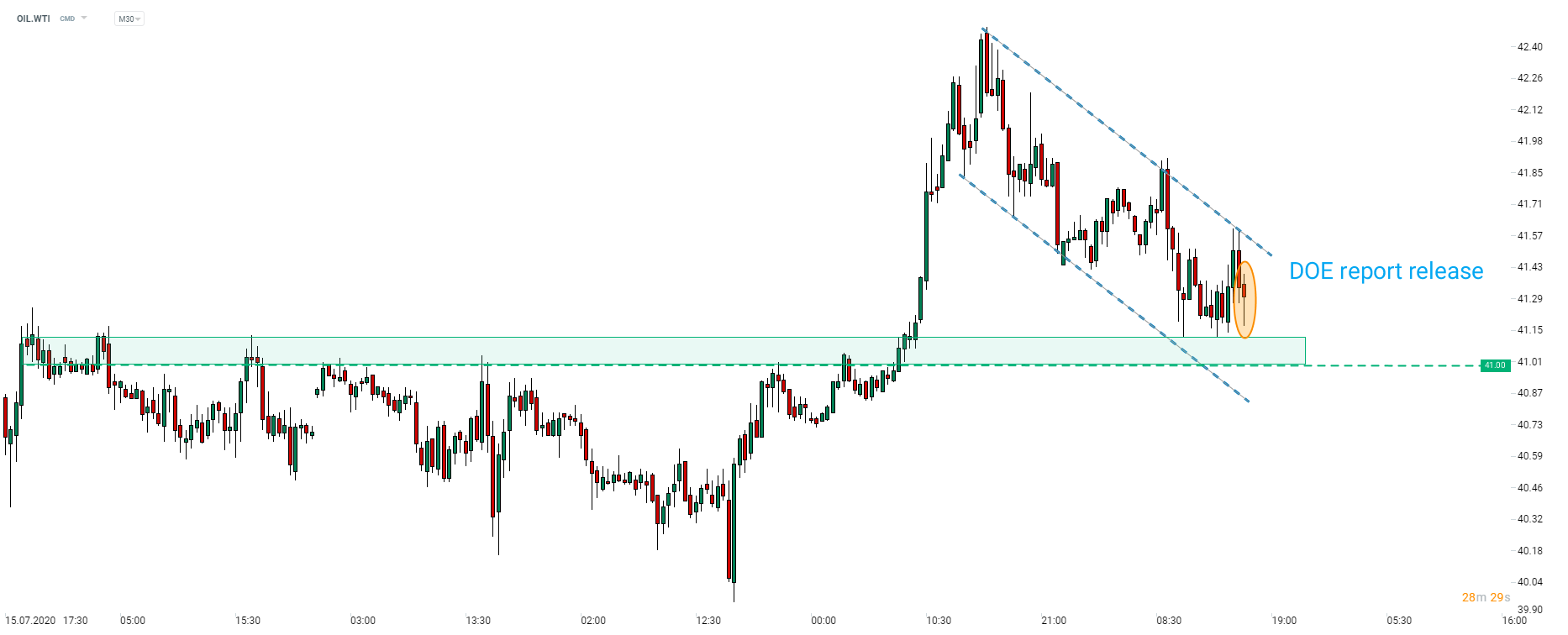The US Department of Energy released the latest data on the change in oil inventories at 3:30 pm BST. Report showed inventory builds in two categories - crude oil and distillates - and confirmed yesterday's estimates from API. Gasoline inventories dropped in-line with estimates Key takeaways from today's DOE report:
-
Oil inventories: +4.89 mb vs -1.95 mb expected
-
Distillate inventories: +1.07 mb vs -0.55 mb expected
-
Gasoline inventories: -1.18 mb vs -1.17 mb expected
Oil, just as stock market indices, is trading at post-pandemic highs. WTI price has been struggling in the $41.00-41.50 area for a few days now and has entered a short-term downward trend. Oil prices dropped in response to DOE report release. However, the scale of the move was quite minor.
 OIL.WTI trades in a short-term downward channel. Price moved towards the support zone at $41 in the aftermath of the DOE report release. However, WTI started to recover later on Source: xStation5
OIL.WTI trades in a short-term downward channel. Price moved towards the support zone at $41 in the aftermath of the DOE report release. However, WTI started to recover later on Source: xStation5

Morning Wrap: Global sell-off in the technology sector (13.02.2026)

Daily summary: Silver plunges 9% 🚨Indices, crypto and precious metals under pressure

🚨Gold slumps 3% amid markets preparing for Chinese Lunar Year pause

Cocoa falls 2.5% to the lowest level since October 2023 📉


